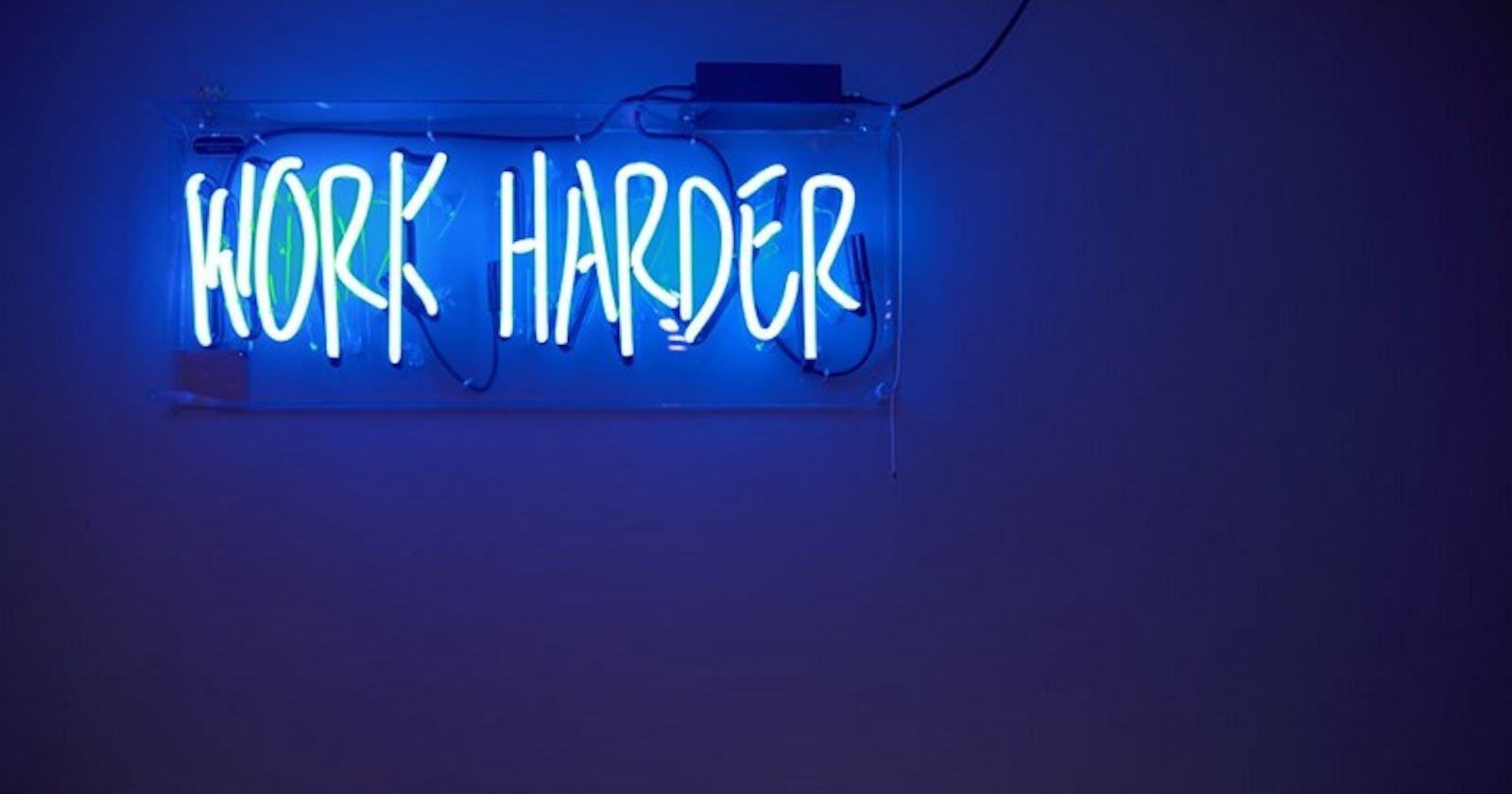By Jordan Whitfield
(*The draft of this article was started in May 30, I am finally publishing it now*). You have probably seen a lot of articles from “Grow with Google Challenge” participants. The stories range from how to complete the challenge, how to get accepted to Phase 2, or how much difference this challenge has already made in people’s lives. To be quite honest, I don’t really have a one-solution strategy to get accepted to Phase 2, if this is what you are curious about. Also, I won’t be talking about acceptance to the next stage. In this piece I wanted to talk about my experience with the first project submission.
When I first started FreeCodeCamp, I built my first portfolio project on codepen. It was unintentionally responsive but visually awkward. To be fair, I have a lot of trouble with design, colors and layouts. Hence, I am better off complying with minimalistic setup, but somehow I am steered towards bright neon colors as usual. My first project was a child’s play but also a fruitful playground: putting different elements together, seeing how they look and experimenting with CSS at the same time.
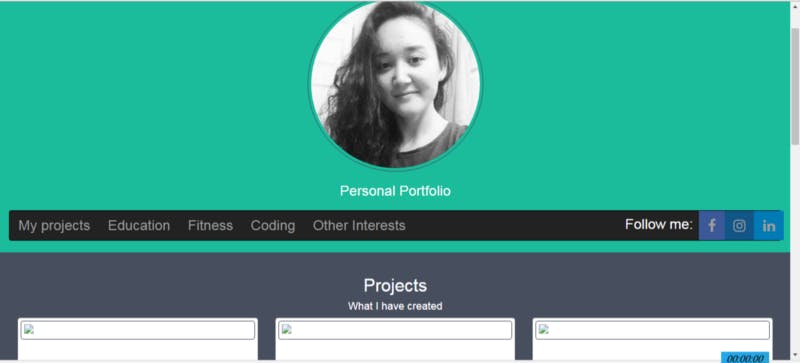
First portfolio project after FreeCodeCamp
I did not do anything else to that project. It just sat there. About 3 months later I was completing free online courses offered by my school, Indiana University. Inspired by those classes, I got started on the second portfolio. This one had a navigation bar and a few other sections detailing my credentials.. However, it was not responsive. I was totally clueless on how to make it responsive, other than learn something called Bootstrap. The more I worked on it, the bulkier it seemed to become. My design was not leading me anywhere, it was not pleasing to look at, and I was scared to throw that away to start anew. After all, this is my child and I worked so hard on it. Hosted on github pages, it sat there somewhat useless to me.
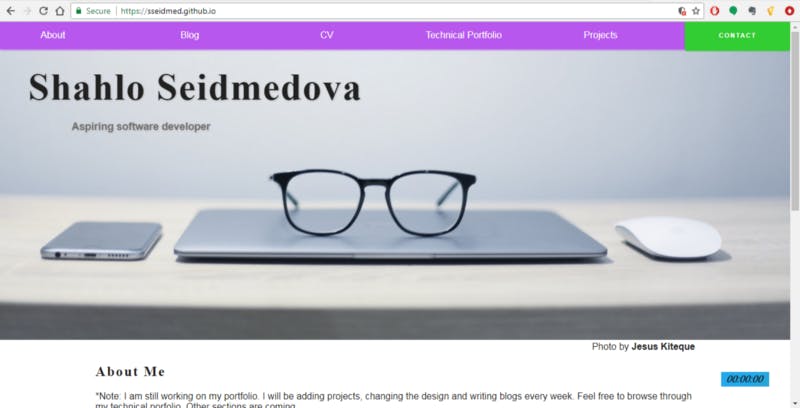
A few weeks into the beginning of Udacity’s Front End Web Development Nanodegree, I felt confident that this time I will have a semi-decent project. Having learned a few types of responsive layouts, I sat down to work only 2 days before the deadline. I thought it would be easy. Of course, it wasn’t. I put together different div boxes I am going to have, hand drew a layout for my website, figured out minor breakpoints for media queries, etc. Every time I ran into a problem, I would think I am not bound to become a developer. So why am I even trying? I heard people would wake up in cold sweat in the middle of the night thinking of the project they are working on. This is related to any professional field. Obviously, I did not wake in cold sweat, but I remember thinking about my project in the middle of the night while my husband was peacefully asleep next to me. I would wake up a little worried about overcoming this barrier. It was always something small, like forgetting to put a class name, or a closing tag.
Two days past the deadline, I finished my project. It came back mostly positive, with small corrections here and there. It is simple, responsive and looks very nice, in my opinion. The most important thing is that I was not writing an unknown code to me, this time I mostly knew what I was doing.
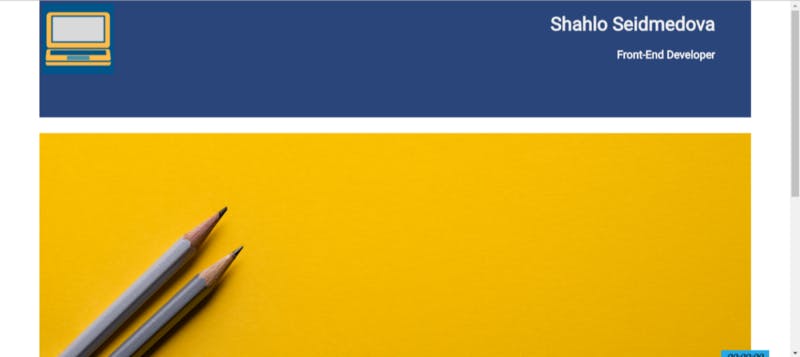
First half of the page
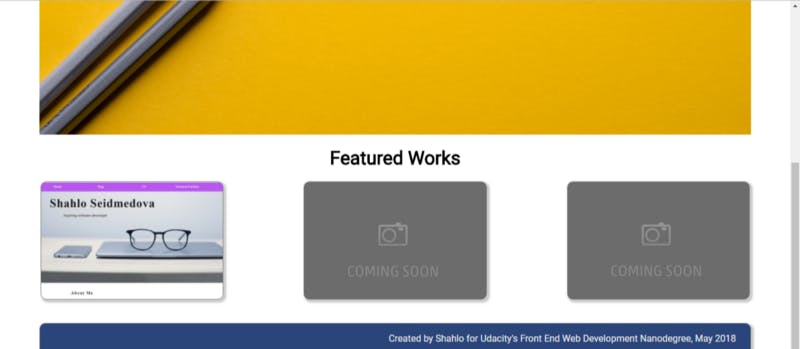
Second half of the page
Lastly, what did I learn from completing this project? I always feel inadequate for not knowing everything HTML and CSS. I realize there is still a lot there for me to learn. Here are some take-away points:
- Be patient. I am very impatient. This whole habit of refusing to dive deep into a new skill unless I immediately become an expert at it is so harmful and counterintuitive. I know of no skill of mine that was acquired seamlessly.
- Work through it. This pairs well with patience. Pick your work apart, look at the details separately and together, take a step back. It is so important to sleep on the problem at hand. What seems impossible the night before is a very doable task in the morning.
- Seek inspiration, not competition. In the beginning stages, we tend to be overcome by jealousy, inadequacy and impostor syndrome. Explore other people’s works and find your own style. In other words, get inspired instead of questioning yourself.

